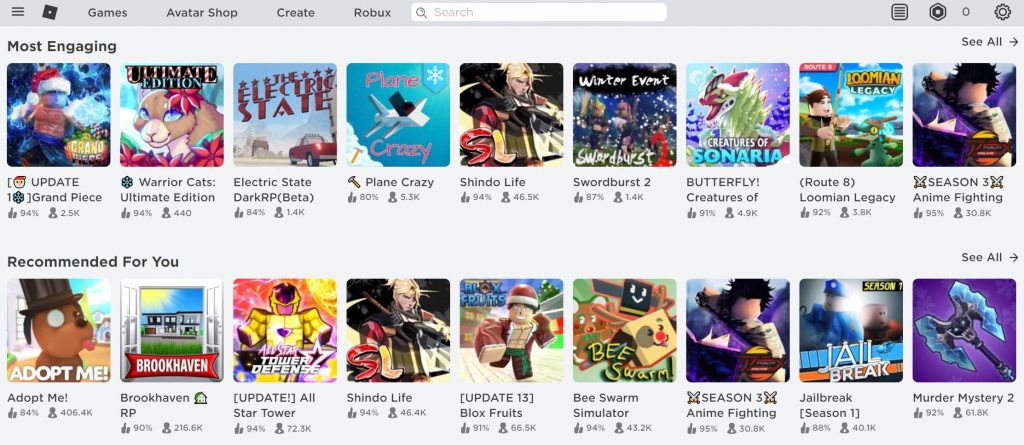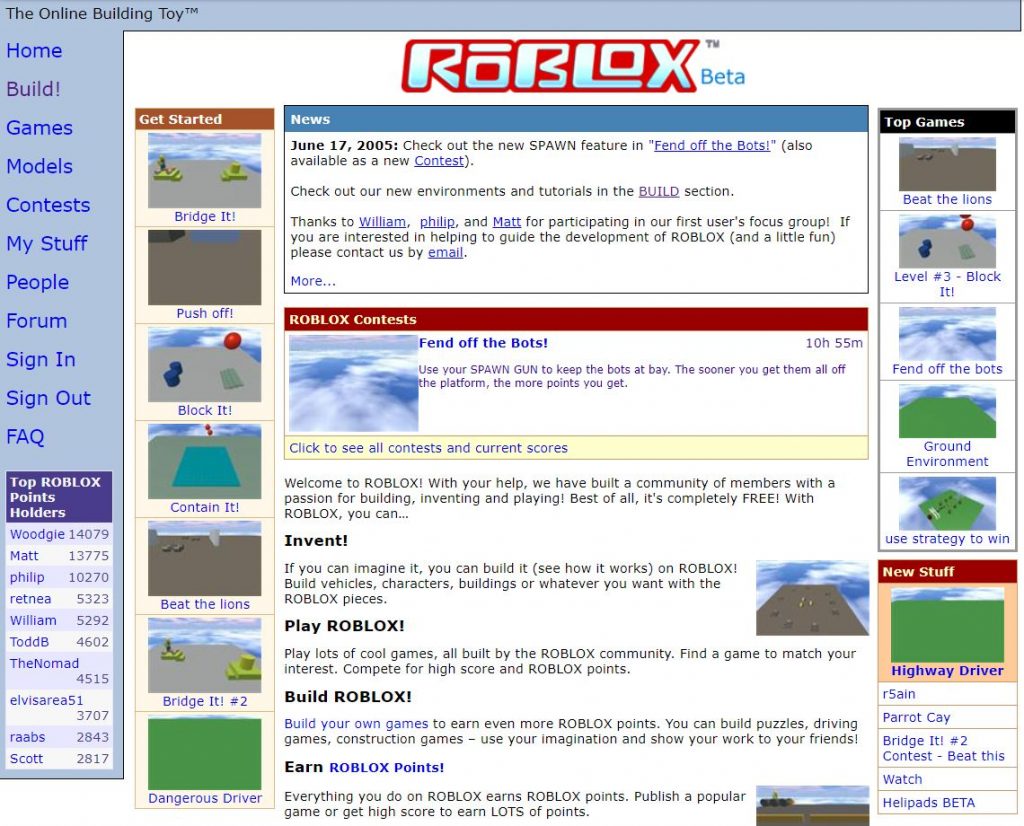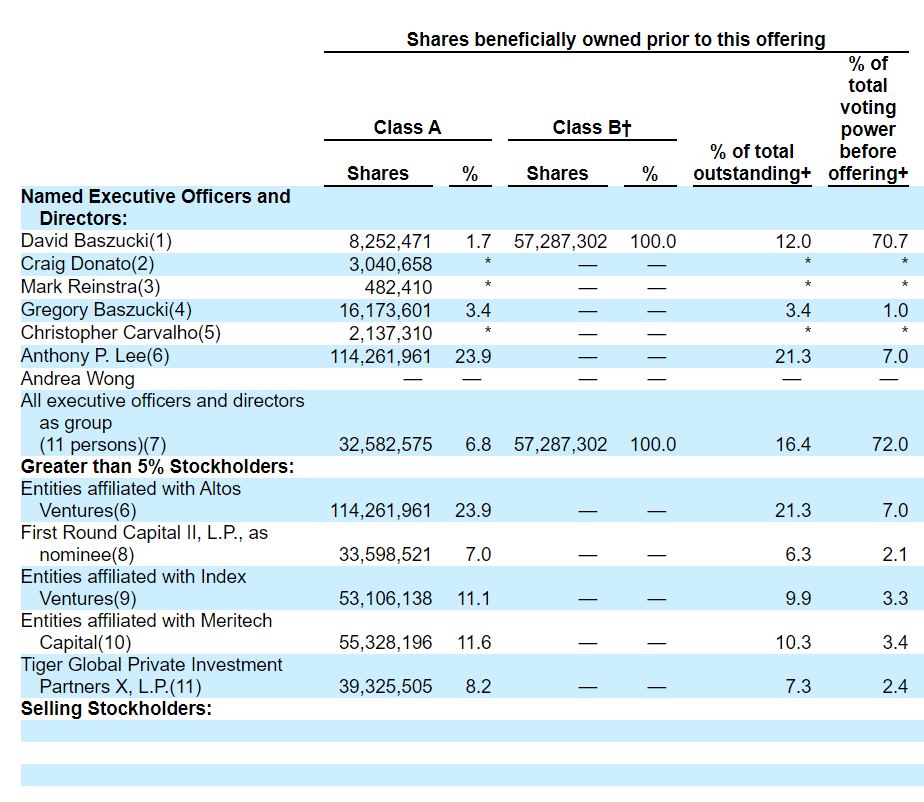How Much Money Does Roblox Make A Year
Executive Summary:
Roblox is a multiplayer gaming platform that enables its users to create games and, likewise, play games created by others. The Roblox library, as of today, contains over 50 million games.
Roblox makes money through the sales of its in-game currency Robux, advertising deals, licensing agreements, and royalties.
Founded in 2004 and headquartered in San Mateo, California, Roblox has risen to become one of the world's most frequented gaming ecosystems. The company is set to go public in 2021 under a direct listing.
What Is Roblox & How Does It Work?
Roblox is a multiplayer game creation platform that allows its users to create games and play games created by others in the ecosystem.

Once you sign up as a user, you can play as many different games as you like. Roblox's library contains more than 50 million games.
Games are created in Roblox Studio, the platform's proprietary game-development tool. Furthermore, users can create their own avatars. If users wish to customize their avatar, they can do so by purchasing Robux, the platform's digital currency.
If cash is tight, then users can participate in special events to win Robux rewards. Talking about events, Roblox's key building stone is centered around community.
Users can chat with each other, either individually or in group chats. Because Roblox attracts a predominantly young audience (its core demographic is between 9 to 15 years old), many words are censored to make it child-friendly.
To that extent, parents have the capability to edit the game's settings. They can adjust things like the games that are available to play, who their child can talk to, and more.
Roblox (and its associated games) can be accessed and played on the platform's website, mobile and tablet devices (available via Android and iOS), Oculus Rift, and Xbox.
Roblox Company History
Roblox Corporation, headquartered in San Mateo, California, was founded in 2004 by David Baszucki (CEO) and Erik Cassel.
From an early age, Baszucki, who was born on 20 January 1963 in Canada, did his undergrad at Stanford where he majored in engineering and computer science.
After 4 years of working in the industry, he decided to launch his own business. In 1989, together with his brother, he founded Knowledge Revolution.
The startup's main service was to develop educational applications for Apple's Macintosh users. One of the firm's first products became Interactive Physics, a program that (as the name suggests) helps users to learn concepts of Physics. Users were even able to carry out experiments in a 2D environment, which at the time was highly advanced.
Throughout the years, the team continued to develop and release more educational applications. After 9 years in business, in 1998, Knowledge Revolution was acquired by California-based MSC Software for a combined $19 million.
Baszucki stayed on at MSC and joined the firm as a Vice President. He left the company 4 years later in 2002 to launch his own investment firm named Baszucki & Associates. In 2003, he even hosted a radio show in Santa Cruz called KSCO Radio.
But after some time, he was itching to get back into the company creation process. He chose Erik Cassel, one of his long-term running mates, as a co-founder.
Baszucki met Cassel in the 1990s when he joined Knowledge Revolution as a fresh grad out of Cornell University. Cassel initially learned about Knowledge Revolution in a MacUser magazine and immediately after applied for an interview – and was accepted on the spot.
Cassel eventually rose to become a Vice President of Engineering at the company and stayed on at MSC after they were acquired. Even after their respective departures, the pair kept in touch.
They would reminisce about how Interactive Physics (a product they developed at Knowledge Revolution) users would play around with the software and create their own designs. Reminiscing led to ideation and they would decide to build a similar software for gaming purposes.
Baszucki and Cassel would work on what would end up becoming Roblox for over 2 years, creating all the code and designs themselves. They would launch the startup under the domain and brand name GoBlocks.com. It was later renamed to Dynablocks until it finally arrived at Roblox in January 2004.

The startup would launch its beta version a year later in 2005. At first, Roblox didn't gain any traction until Cassel suggested to Baszucki to open up the platform (and its development kits) to outside developers. The startup basically took off from there.
A year later, in 2006, Roblox finally launched to the public. In the early days, the team experimented with spending money on advertising to acquire users. But what they soon discovered was that the platform started to take on a life of its own.
Because content is generated by its users, Roblox's soon found itself being able to host a great variety of games on its platform. That, in turn, created a flywheel effect that would attract more users, which in turn would create and play more games.
Roblox, in the first few years of operation, simply grew by word of mouth. The growth allowed them to raise their first-ever round of funding in August 2009, netting the company $2.3 million in disposable cash.
By 2011, close to 6 million people were visiting its website every month. Unfortunately, not all was going well within the company. A year earlier, Cassel was found to have cancer. He battled the disease over the next 3 years but eventually died in 2013. He was 45 years old.
Early on, Roblox took advantage of brand partnerships that would grow its advertising base even further (the company used to generate money from video ads that played before a user entered the game).
Roblox would form partnerships with the likes of Disney, Lego, Hasbro, and many more. These partners would then advertise their products and services, such as upcoming movies, on the platform.
Being built on the cloud would allow Roblox to then create a cross-platform gaming experience. The team would go on and launch
- an iOS app in 2012
- an Android app in 2014
- an Xbox and Oculus Rift app in 2015
With every launch, Roblox would select just a few games that the team was certain would work on the particular gaming device. This allowed new users to get acquainted with the platform and would ultimately minimize friction.
The firm's inflection point would come in the form of 2 innovations. First, it introduced Robux, the platform's in-game currency, to players in 2007. Robux became one of the 2 currencies on the platform alongside Tix, in which the latter was removed in 2016.
Next, Roblox introduced a developer-payment program in the fall of 2013. The program enabled developers to get paid. Whenever users would buy something within their game (using Robux), a fraction of that purchase would go to the developer. Roblox would keep the rest.
Within a year, Roblox was able to pay out over $500,000 to participating developers. Some, like brothers Conor and Darragh Griffin (creators of the game Sword Fighting Tournament) of Limerick, Ireland, were able to bank in well over $10,000 a month.
Until that point, developers were creating games simply for the love of it. But the payment program fueled the ambitions and dreams of many budding entrepreneurs who eventually started to outperform each other in the quest for more dough.
This resulted not only in an ever-increasing inflow of new games but also substantially upped their quality. Developers would start to create authentic worlds with associated storylines to lure in more and more gamers. Fast forward to today, Roblox is on pace to pay out over $250 million to its developers – in a year.
The firm, furthermore, invests plenty of resources to nurture the talent they have on their platform. For instance, the firm regularly invites developers to work on software improvements together with its R&D team (as part of its accelerator program). Additionally, Roblox also hires some of these developers as interns or full-timers.
The rise in popularity of those games would often, similar to Minecraft, be amplified by influencers. Twitch and YouTube channels like Flamingo or Tofuu amass subscriber bases that reach into the millions.
Being present in over 50 percent of all U.S. households allowed Roblox to enter the physical world of retail. In 2016, the firm, in cooperation with retailers like Toys'R'Us, would launch a line of toys representing its most popular game characters.
Unfortunately, not everything was going according to plan. Roblox soon started to face the same issues that user-generated content platforms like Facebook and Twitter have been subject to for the past decade.
In 2018, hackers altered the code of a Roblox game and "gang-raped" the avatar of a 7-year old. Her mother was quick to intervene, but the incident spurred a long-lasting discussion on the potential adverse effects Roblox could cause. Similar incidents, such as games filled by members of the KKK or hackers bypassing Roblox's language filters, would follow after.
The company responded with a few initiatives. In January 2019, it hired Laura Higgins, an online safety expert from the United Kingdom, as its first director of digital civility. Roblox was, furthermore, one of the 10 companies that were responsible for creating the Fair Play Alliance, a group aimed at curbing toxic behavior within video games. Lastly, Roblox upped its staff of content moderators and promised to hire more experts in the field of cybersecurity and engineering.
Despite these setbacks, Roblox's platform continued to expand throughout the years. The continued growth culminated in Roblox filing to go public in October 2020. But 2 months later, the firm pulled out of the IPO out of fear of losing out on money.
For reference, Airbnb and DoorDash IPO'd in December 2020 and lost out on billions due to after their respective valuations were heavily mispriced. Instead, Roblox raised another round of funding in January 2021 which allowed its employees and long-time shareholders to cash out. The company is set to pursue a direct listing instead.
Today, Roblox employs over 2,000 people across 2 offices in San Mateo and Shenzhen (China). Over 150 people are accessing its platform every month, making it one of the world's most-frequented websites.
How Does Roblox Make Money?
Roblox makes money through the sales of its in-game currency Robux, advertising deals, licensing agreements, and royalties.
The firm operates under a freemium model. While games are free to play, users will have to pay to unlock more advanced features and customizations.
Let's dive into each of these in more detail below.
Robux
Robux is the digital in-game currency that players can buy, allowing them to customize their avatars, buy their way into certain experiences, or enhance these experiences.
The currency is available as a one-time purchase or via a monthly subscription (called Roblox Premium).

Apart from Robux, monthly subscribers receive benefits such as store discounts, increased returns when reselling items, or the ability to trade items with other users.
Most of the revenue Roblox generates comes in the form of Robux sales. According to the firm's S-1 filing, the average lifetime for a paying user is 23 months.
As previously stated, Roblox then shares a portion of that revenue with its developers. More precisely, developers receive 24.5 percent of all the revenue generated within their game(s). Developers are set to earn $250 million in 2020 alone.
Advertising
Roblox partners up with various brands, ranging from Marvel to Lego, that in turn promote their products and services on the platform.
In 2019, for instance, Roblox partnered up with Disney for an in-game creator event that promoted Star Wars Episode IX – The Rise of Skywalker. The event included a series of lessons that would show gamers how to create their own spaceships.
Roblox then gets compensated by the advertiser for this brand exposure. For brands like Disney or Lego, this represents a close-to-ideal case study in native advertising given Roblox's 150 million monthly active gamers and predominantly young userbase.
Licensing
Partners like Toys'R'Us or Walmart pay a licensing fee in exchange for being able to sell Roblox-branded items.
In most cases, these items are toys representing some of the platform's most sought-after characters and games.
Royalty Fees
Royalties are paid whenever one party wants to get access rights to the intellectual property (IP) of another party. Whenever that IP is used, a licensing fee must be paid.
In its Terms of Use (under Ownership of UGC and License Grant to Roblox) Roblox states that while developers retain all the copyrights, they simultaneously agree to grant Roblox the right to license out that content.
Other products and services can therefore use that IP and display it on their app, platform, website, and more. Every time that's the case, Roblox receives a so-called royalty fee.
Roblox Funding, Revenue & Valuation
According to Crunchbase, Roblox has raised a total of $855.7 million across 9 rounds of venture capital funding.
Prominent investors into the company include Altos Ventures, Andreessen Horowitz, Warner Music Group, Tencent, Tiger Global Management, Dragoneer Investment Group, and many more.
Roblox is currently valued at $29.5 billion, making it one of the world's most valuable gaming franchises. The valuation was announced in January 2021 during the firm's Series H.
In the first 9 months of 2020, Roblox generated $588.7 million in revenue, up 68 percent from the $349.9 million it reported in 2019. The company reported a net loss of $203.2 million over the same time span, up from $46.3 million in the year prior.
Who Owns Roblox?
Roblox declared its ownership structure as part of the firm's S-1 filing that dropped in November 2020. An overview can be found below:

It has to be noted though that the latest Series H round, which will have caused further dilution to the ownership structure, is not represented in the prospectus.
At the time of filing, Anthony Lee (through his investment with Altos Ventures) was Roblox's largest shareholder with an ownership stake of 21.3 percent.
CEO and founder Baszucki remains a close second with a 12 percent stake. But because who owns all the Class B common stock, which grants him 20 votes per share (as opposed to Class A with 1 vote per share), his total voting power is 70.7 percent. This grants Baszucki the majority of voting rights – and possibly the ability to overrule any contrarian board decision.
Other notable shareholders include Meritech Capital (10.3 percent), Index Ventures (9.9 percent), and Tiger Global Management (7.3 percent).
How Many People Play Roblox?
According to the firm's S-1 filing, Roblox now has over 31 million active users playing the game – in a day. That's an increase of close to 100 percent from the year prior (2019) when Roblox boasted 17.6 million daily active users.
In July, the company, furthermore, announced that its game attracts over 150 million active users every month.
Its website attracts close to 900 million visitors every month. This makes Roblox one of the 50 most-frequented websites worldwide.
How Much Money Does Roblox Make A Year
Source: https://productmint.com/roblox-business-model-how-does-roblox-make-money/
Posted by: floydandised.blogspot.com

0 Response to "How Much Money Does Roblox Make A Year"
Post a Comment